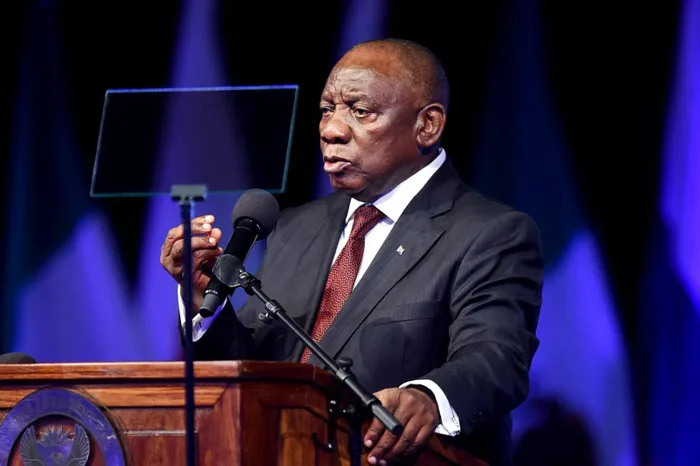
. President Cyril Ramaphosa has established a Commission of Inquiry into the delay in the investigations and prosecution of TRC cases.
Image: Itumeleng English / Independent Newspapers
PRESIDENT Cyril Ramaphosa has established a Commission of Inquiry into the delay in the investigation and prosecution of the apartheid-era crimes, but the nephew of anti-apartheid activist Ahmed Timol believes this might not serve the purpose of bringing justice to the families of the victims.
Imtiaz Cajee, whose uncle was murdered while in police detention in October 1971, said he has serious reservations about the commission, adding that it will only make recommendations that must be handed to another law enforcement agency.
Cajee said he has always been of the view that instead of a commission of inquiry, the government should investigate the matter.
He was responding to the Presidency's announcement on Thursday that Ramaphosa had signed a proclamation for the establishment of a judicial commission of inquiry to determine whether attempts were made to prevent the investigation and prosecution of apartheid-era crimes.
The commission will be chaired by retired Constitutional Court Judge Sisi Khampepe. She will be assisted by retired Northern Cape Judge President Frans Diale Kgomo and Advocate Andrea Gabriel SC.
This comes after a court case brought by the families of the victims of apartheid-era crimes against the government and Ramaphosa in January. The families are seeking constitutional damages and a commission of inquiry into political interference, which halted the investigations and prosecutions of the perpetrators.
They allege that the government, since the late 1990s, failed to properly investigate unresolved killings, disappearances and other crimes during apartheid, despite recommendations made by the post-apartheid Truth and Reconciliation Commission (TRC).
The TRC was set up in 1996, and its mission was to expose and record apartheid-era crimes and give some of those responsible an opportunity to confess their role, including members of the apartheid government’s state security forces, who were implicated in many killings.
Only a handful of cases were followed despite cases being referred to the National Prosecuting Authority (NPA) for further investigation and prosecution.
The Presidency said the establishment of the commission of inquiry is part of an agreement reached in settlement discussions in a court application.
However, Cajee maintains there is no need for the commission, adding that the source of allegations around political interference came from senior NPA officials, and the government should have opened a case and investigated the matter.
“For me, it never makes sense to hold a commission of inquiry to investigate the allegations. A simple criminal case would have made a finding on whether NPA officials failed to execute their duties. And what prevented them (NPA officials) from opening cases against people that they have alleged interfered with them,” he said, adding that this would be a waste of millions of Rands like the Marikana Commission of Inquiry and the State Capture Commission of Inquiry.
In its statement, the Presidency said the commission must investigate whether attempts were made to influence members of the SAPS or NPA not to investigate or prosecute cases identified by the TRC. The commission would also investigate whether any members of the SAPS or the NPA improperly colluded with such attempts to influence or pressure them and whether any action should be taken by an organ of state, including possible further investigations or prosecutions, of persons who may have acted unlawfully.
The commission will cover the period from 2003 to the present and is expected to complete its work within six months from the date of this proclamation and submit its report within 60 days of its completion.
“As the commission undertakes this important task, we welcome the firm commitment by the NPA and the South African Police Service to investigate and, where appropriate, to prosecute the outstanding TRC cases. In recent years, the NPA has reopened and pursued priority cases. It has assigned dedicated resources to ensure these cases are dealt with effectively.
This commission of inquiry is an opportunity to draw a line under a painful period in our country’s history. It is an opportunity to establish the truth and take steps, to the extent possible, to put right what may have gone wrong,” read the statement.